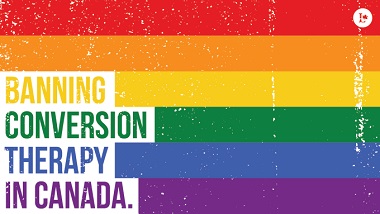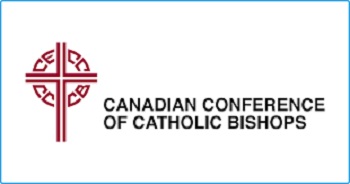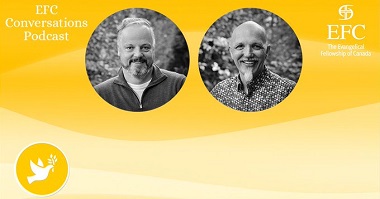
March 9 tweet on the Liberal Party site: “Conversion therapy is harmful, it’s scientifically discredited, and it’s wrong – period. . . .”
The Liberal government is determined to criminalize conversion therapy, and has come very close to achieving its aim. In November, they received near unanimous support for Bill C-6 in Parliament.
The legislative summary of the bill states:
The definition of “conversion therapy” included in the bill, as paraphrased by the Department of Justice, is “a practice that seeks to change an individual’s sexual orientation to heterosexual, to repress or reduce non-heterosexual attraction or sexual behaviours, or to change an individual’s gender identity to match the sex they were assigned at birth.”
 The Canadian Council of Catholic Bishops put out a release:
The Canadian Council of Catholic Bishops put out a release:In a statement on the proposed legislation, the Bishops of Canada emphasize that:
The Catholic Church, like many Canadians, is opposed to any form of coercive and manipulative activities because they do not respect the sacred dignity of the human person and the freedoms inherent with that dignity.
In so far as it seeks to outlaw coercive actions against individuals, the intention behind Bill C-6 is commendable.
However, following consultations with professional associations, other faith groups and legal experts, the Bishops note significant concern with the content of Bill C-6, especially its ambiguities, which they fear could render currently lawful actions as criminal offences.
These ambiguities include, for example:
- the absence of a provision for legitimate, differing viewpoints on human sexuality arising from religious beliefs, philosophical debate or scientific and medical study;
- the lack of provision for conscientious dissent in such matters, including teaching or public presentations; or
- the possibility that conversations within families, including private conversations between parents and their children on matters of human sexuality, could be deemed public and subject to prosecution, thus restricting the right of parents to raise their children in accordance with their religious and ethical convictions.
In their statement, the Bishops reiterate the Church’s firm rejection of every and any coercive action and they clearly affirm the perennial teaching regarding the inherent dignity of every human person.
However, the need to uphold and respect human dignity as well as to protect freedom of conscience, religion, thought, belief, opinion and expression also means Bill C-6 should not be allowed to proceed in its current form.
Go here for the full statement.
 The Evangelical Fellowship of Canada (EFC) is also opposed to the bill in its current form. Their statement said:
The Evangelical Fellowship of Canada (EFC) is also opposed to the bill in its current form. Their statement said:
A key concern is that the definition of conversion therapy includes efforts to repress or reduce sexual behaviour. In accompanying documents, the Justice Department said the legislation would not criminalize
private conversations in which personal views on sexual orientation, sexual feelings or gender identity are expressed such as where teachers, school counsellors, pastoral counsellors, faith leaders, doctors, mental health professionals, friends or family members provide support to persons struggling with their sexual orientation, sexual feelings or gender identity [emphasis added].
In a media Q and A on previous Bill C-8 in March, Justice Minister Lametti was asked if it would be legal for religious leaders to speak about homosexuality. He replied that if it’s an open-ended and exploratory conversation, it is not prohibited for religious leaders, parents or others. He went on to say: “What is covered by this legislation are practices that attempt to change one’s orientation towards a predefined goal.”
These qualifiers (private, personal, open-ended, exploratory) are not included in the legislation itself, and also raise serious questions about whether a sermon series or a youth Bible study or other programs on sexual ethics offered to those wanting to order their sexual lives in accordance with their religious conscience would be construed to fit the definition of a practice, treatment or service.
And since the definition of conversion therapy includes reducing sexual behaviour, programs offered in a church or ministry setting that consider sexual behaviour could be considered as being toward a “predefined goal.”
Go here for the full statement.
Two videos
 The EFC has produced two videos during the past week related to the conversion therapy issue:
The EFC has produced two videos during the past week related to the conversion therapy issue:
- Understanding the proposed conversion therapy ban, featuring Julia Beazley (EFC), Derek Ross (Christian Legal Fellowship) and Deina Warren (Canadian Centre for Christian Charities). A recording from the November 24 webinar is coming soon.
- Journey Canada and their concerns with Bill C-6 on conversion therapy: A conversation between Toni Dolfo-Smith, the Vancouver-based founder and executive director of Journey Canada, and Graeme Lauber, communications person for Journey Canada.
Other opponents
Christians are not the only ones calling the Criminal Code amendments into questions.
- Meghan Murphy of Feminist Current and four guests discussed The ignored repercussions of Bill C-6, and why we need to stop it before it’s too late.
- Columnist Barbara Kay wrote The case for deep-sixing Bill C-6 for The National Post.
- ARPA Canada Director of Law and Policy André Schutten and José Ruba from Faith Beyond Belief made a very effective presentation before the Justice Committee December 3. Go here for the 27-minute video.

Another Liberal effort to disrespect and alienate gullible and naïve Canadians.